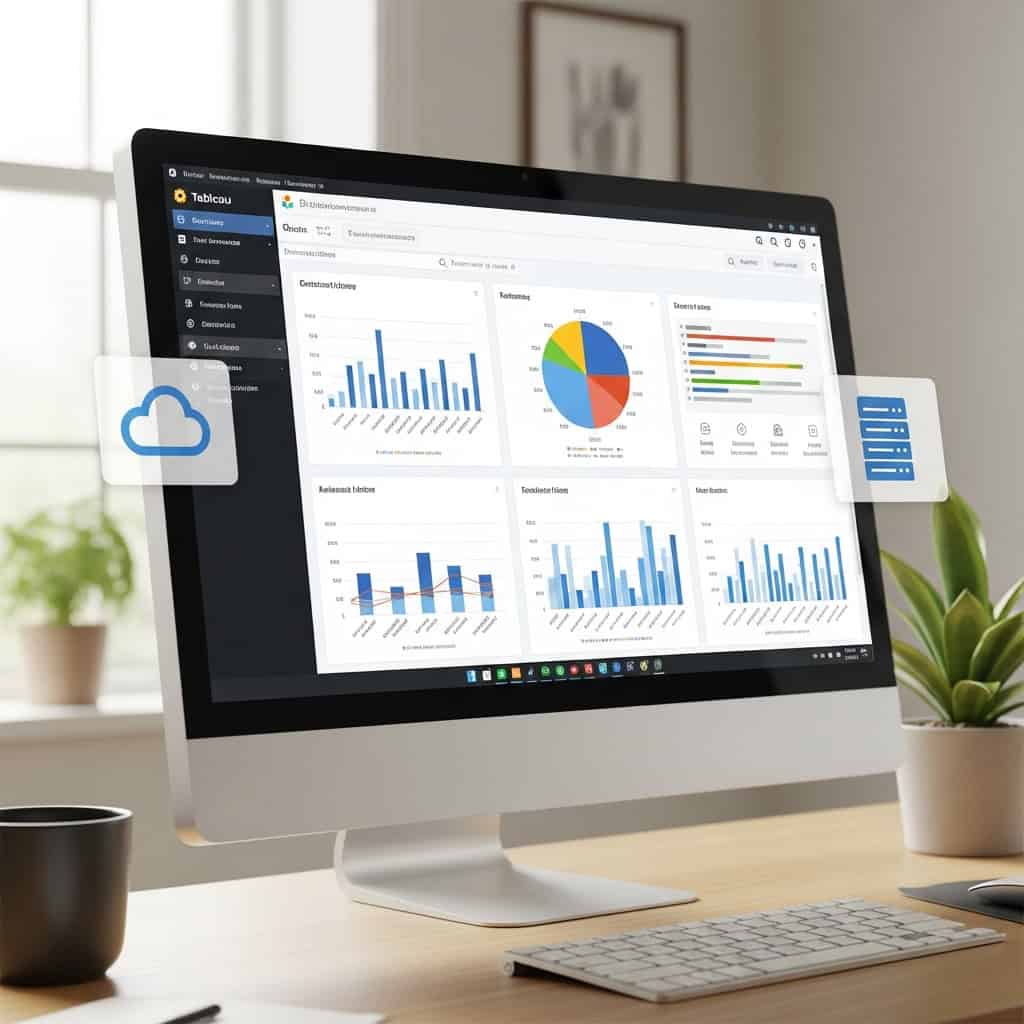10 Smart Business Tools Every Entrepreneur Should Use in 2025
Business technology is evolving at an unprecedented pace, reshaping how organizations operate and compete. Leveraging the right digital tools can provide a substantial advantage in efficiency, communication, and growth. As we move into 2025, entrepreneurs must stay updated with the latest innovations to remain competitive. From project management platforms to AI-driven analytics, smart adoption is crucial for scaling and thriving.
1. AI-Powered Project Management: Monday.com

Monday.com stands out in 2025 for its advanced AI-driven project management features that streamline workflows and automate routine tasks, freeing up valuable time for teams. Unlike traditional platforms, Monday.com uses artificial intelligence to suggest task prioritization, detect workflow bottlenecks, and automate recurring processes.
Its seamless integration with popular productivity tools like Slack, Google Workspace, and Zoom enhances team collaboration and efficiency. According to a recent Forbes review, Monday.com’s AI capabilities offer a significant edge for growing businesses in a fast-paced environment.
2. Advanced Communication: Slack

Slack remains a leader in business communication by offering robust messaging, easy file sharing, and extensive integrations with tools like Google Drive and Trello. Its intuitive channels and direct messaging foster efficient collaboration, making it invaluable for remote and hybrid teams.
Compared to competitors such as Microsoft Teams, Slack stands out for its flexibility and the breadth of third-party integrations available in its app directory. Its user-friendly interface enables faster onboarding and adaptability. For an in-depth look at Slack’s latest features, read TechCrunch’s analysis of recent updates.
3. Smart Accounting: QuickBooks Online

QuickBooks Online revolutionizes accounting for entrepreneurs with automated bookkeeping, seamless invoicing, and real-time financial reporting. Its cloud-based platform allows business owners to access their accounts anywhere, unlike traditional desktop software that requires on-site access and manual updates.
With features such as automatic bank reconciliation and expense tracking, QuickBooks Online streamlines financial management, reducing errors and saving valuable time. This makes it especially attractive for small businesses seeking efficiency and scalability. For a comprehensive overview of QuickBooks’ features in 2025, explore this Investopedia guide.
4. Secure Cloud Storage: Google Drive

Google Drive offers entrepreneurs secure, scalable file storage and real-time collaboration, making document sharing and teamwork effortless. Integrated tightly with Google Workspace, users can co-edit documents, spreadsheets, and presentations from any device.
Compared to Dropbox and OneDrive, Google Drive stands out for its advanced security features, including two-factor authentication and granular sharing controls. Its recent updates to privacy controls provide even greater transparency and data protection for businesses. For an in-depth look at these enhancements, read this CNET article on Google Drive’s privacy updates.
5. Automated Marketing: HubSpot

HubSpot streamlines marketing by automating email campaigns, lead generation, and customer relationship management within a single, unified platform. Unlike Mailchimp, which primarily focuses on email marketing, HubSpot offers a comprehensive suite that includes sales and service tools, making it ideal for businesses aiming to scale efficiently.
Its intuitive dashboards and workflow automation help nurture leads and track engagement across multiple channels. HubSpot’s centralized approach reduces complexity and improves visibility for marketing teams. For actionable tips and guides, explore HubSpot’s Small Business Marketing Resource Hub.
6. E-Signature Solutions: DocuSign

DocuSign empowers entrepreneurs to execute secure, legally binding agreements electronically, dramatically speeding up contract management and reducing paperwork. Its robust authentication measures and audit trails ensure compliance and peace of mind.
Compared to Adobe Sign, DocuSign is often preferred for its user-friendly interface and global acceptance across industries. Its compatibility with various document types and integration with popular business apps make it a top choice for digital transactions. For insights into the growing reliance on digital agreements, see this Business Insider article on e-signature trends.
7. Customer Support Automation: Zendesk

Zendesk leverages AI-driven helpdesk, automated ticketing, and live chat to enhance customer satisfaction and streamline support workflows. Its intelligent automation routes inquiries to the right agents and provides instant responses to common questions, reducing wait times.
Compared to Freshdesk, Zendesk stands out for its advanced analytics, deeper customization options, and seamless integration with CRM systems. These features enable businesses to tailor support experiences and gain actionable insights from customer interactions. For more on the transformative role of AI in customer service, review this Gartner report.
8. Online Payment Processing: Stripe

Stripe offers businesses a secure, flexible payment gateway with features like recurring billing, fraud prevention, and support for over 135 global currencies. Its developer-friendly API allows for highly customized payment experiences and seamless integration into websites or mobile apps, setting it apart from competitors like PayPal.
Stripe’s robust infrastructure enables entrepreneurs to scale internationally with ease, while detailed analytics provide valuable financial insights. As highlighted in a CNBC story, Stripe plays a pivotal role in powering the digital economy and facilitating online commerce worldwide.
9. Visual Collaboration: Miro

Miro’s interactive whiteboard platform empowers teams to brainstorm, plan, and collaborate visually from anywhere in the world. Its vast template library and real-time editing capabilities make remote workshops and ideation sessions engaging and productive.
Compared to Lucidspark, Miro distinguishes itself with deeper integrations to tools such as Slack, Jira, and Google Drive, streamlining workflows and enhancing productivity. The platform’s flexibility suits everything from agile planning to creative design sprints. For a deeper dive into how visual collaboration is shaping modern teamwork, read this Wired article on the latest trends.
10. Data Analytics: Tableau

Tableau empowers entrepreneurs with intuitive dashboards, real-time data visualization, and advanced AI-driven analytics that uncover actionable business insights. Its drag-and-drop interface simplifies complex data analysis, making it accessible to users at any technical level.
Compared to Power BI, Tableau stands out for its robust cross-platform compatibility, allowing seamless integration with a wide variety of data sources, including cloud services and on-premises databases. This flexibility is especially valuable for organizations with diverse tech stacks. To learn more about the impact of data-driven decision-making, explore this Harvard Business Review article.
Conclusion

Adopting smart business tools is essential for entrepreneurs aiming to remain agile, efficient, and competitive in 2025’s fast-evolving market. Leveraging cutting-edge solutions streamlines operations, enhances collaboration, and unlocks growth opportunities. Continually exploring and integrating new technologies ensures your business remains resilient and adaptable to change. Staying informed about the latest digital advancements is key to future-proofing your operations and achieving sustained success. For more on adapting to business innovation, visit McKinsey’s insights on digital business.






